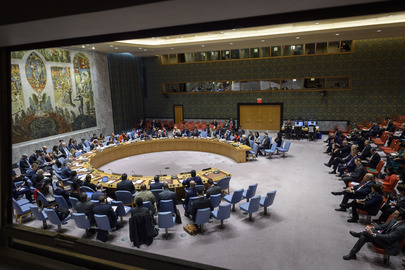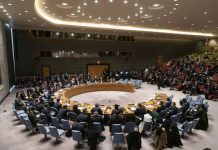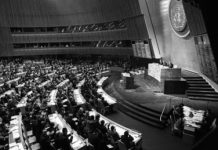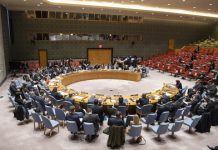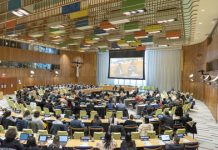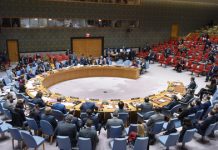Melike Yetken Krilla: We are here at the AI for Good Summit to be able to talk about the future of technology and what we believe artificial intelligence means to improve the state of the world.
It may not surprise you, but at Google we are tech optimists and believe that AI is the future and it creates tremendous opportunities to implement things like the UN Sustainable Development Goals, which are 17 of the world’s most auspicious items in To Do List for the world. And Google wants to play our part to implement those collectively with members of the UN, with society, with researchers to be able to look for tangible ways we can work together in partnership.
UN News: You mentioned the SDG’s… What are the ways and tools that AI, and in particular participation of Google in the projects, can facilitate the attainment of SDG’s?
Melike Yetken Krilla: Right now, the world is behind in its implementation of the SDG’s. We believe that technology can play an advanced role in leapfrogging the implementation. Let me give you a few examples.
First, we’ve partnered with the statistics division of the UN, UN DESA, to launch a public platform called Data Commons for the SDGs. Everyone can go to it now and search. What it has done, is it enables [UN] organisations to feed their data into one area so people can measure SDGs by indicator, by country, by region, how are we globally doing on SDG implementation. So, we can understand the basis of where we are and then be able to deliver implementation, ideally by the 2030.
UN News: Are there any projects – besides the one that you mentioned – where Google is working with the UN or any of its agencies?
Melike Yetken Krilla: One of the things Google is doing is thinking systematically about SDGs implementation. And one examples of that is how we are addressing early warning systems. Looking at the (UN) Secretary-General’s priority of early warning for all, we started with floods. How are they being predicted? What does that look like? How are we quantifying that data?
We launched something called Flood Hub, and we are working with the World Meteorological Organization (WMO) to show when floods are coming using weather data, satellite imagery and AI – to identify seven days in advance when a flood may be coming in a certain area. We have then partnered with NGO’s, governments and the international organisations to share this information. It’s available in over 80 countries, addressing 460 million people right now to ensure that they are preserving their livelihoods and their ability to live.
UN News: So, this is a solution for people to be aware of floods well in advance?
Melike Yetken Krilla: We think these are great examples of us partnering to implement the SDG’s, but more importantly using AI technology to dramatically impact people’s ability to live and have their livelihoods globally.
UN News: The AI development, in particular the generative AI development, has been leapfrogging over the past couple of years. How would you estimate the preparedness of the international community, of international organisations, to using the power of AI?
Melike Yetken Krilla: I would say, last year, with the creation and launch of large language models and generative AI, it was the year of “Wow!”, once in a lifetime, in a generation. I would say that this year is the year of “How?”. How are we going to partner with the international organisations to identify and establish AI rules of the road and guardrails?
The UN is already doing an incredible job through the drafting and creation of the Global Digital Compact, of identifying digital priorities through the Summit of the Future, through the Secretary general’s High Level Advisory Board on AI is really identifying how the UN is engaging in artificial intelligence.
We need 21st century solutions to 21st century challenges. What we need to do is identify these solutions boldly, responsibly and do it together.
UN News: Can we expect that through the technology and through all the solutions that will be found, we will go again from “Wow !” when it comes to AI, to understanding “How?” and then again to “Wow!”, when looking at the results?
Melike Yetken Krilla: Absolutely. Google’s mission is to organize the world’s information and make it universally accessible and useful. And we take that very seriously. We are an AI-first company, and so we are collectively trying to build solutions that we believe are starting now and will continue into the future.
Source of original article: United Nations (news.un.org). Photo credit: UN. The content of this article does not necessarily reflect the views or opinion of Global Diaspora News (www.globaldiasporanews.com).
To submit your press release: (https://www.globaldiasporanews.com/pr).
To advertise on Global Diaspora News: (www.globaldiasporanews.com/ads).
Sign up to Global Diaspora News newsletter (https://www.globaldiasporanews.com/newsletter/) to start receiving updates and opportunities directly in your email inbox for free.


